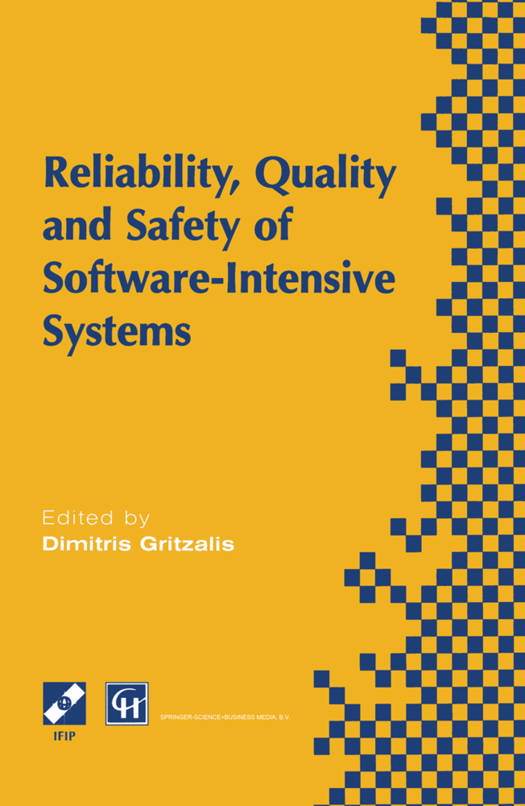
Door een staking bij bpost kan je online bestelling op dit moment iets langer onderweg zijn dan voorzien. Dringend iets nodig? Onze winkels ontvangen jou met open armen!
- Afhalen na 1 uur in een winkel met voorraad
- Gratis thuislevering in België vanaf € 30
- Ruim aanbod met 7 miljoen producten
Door een staking bij bpost kan je online bestelling op dit moment iets langer onderweg zijn dan voorzien. Dringend iets nodig? Onze winkels ontvangen jou met open armen!
- Afhalen na 1 uur in een winkel met voorraad
- Gratis thuislevering in België vanaf € 30
- Ruim aanbod met 7 miljoen producten
Zoeken
Reliability, Quality and Safety of Software-Intensive Systems
Ifip Tc5 Wg5.4 3rd International Conference on Reliability, Quality and Safety of Software-Intensive Systems (Encress '97), 29th-30th May 1997, Athens, Greece
Dimitris Gritzalis
€ 259,45
+ 518 punten
Uitvoering
Omschrijving
It is, indeed, widely acceptable today that nowhere is it more important to focus on the improvement of software quality than in the case of systems with requirements in the areas of safety and reliability - especially for distributed, real-time and embedded systems. Thus, much research work is under progress in these fields, since software process improvement impinges directly on achieved levels of quality, and many application experiments aim to show quantitative results demonstrating the efficacy of particular approaches. Requirements for safety and reliability - like other so-called non-functional requirements for computer-based systems - are often stated in imprecise and ambiguous terms, or not at all. Specifications focus on functional and technical aspects, with issues like safety covered only implicitly, or not addressed directly because they are felt to be obvious; unfortunately what is obvious to an end user or system user is progressively less so to others, to the extend that a software developer may not even be aware that safety is an issue. Therefore, there is a growing evidence for encouraging greater understanding of safety and reliability requirements issues, right across the spectrum from end user to software developer; not just in traditional safety-critical areas (e.g. nuclear, aerospace) but also acknowledging the need for such things as heart pacemakers and other medical and robotic systems to be highly dependable.
Specificaties
Betrokkenen
- Auteur(s):
- Uitgeverij:
Inhoud
- Aantal bladzijden:
- 278
- Taal:
- Engels
- Reeks:
Eigenschappen
- Productcode (EAN):
- 9780412802805
- Verschijningsdatum:
- 30/04/1997
- Uitvoering:
- Hardcover
- Formaat:
- Genaaid
- Afmetingen:
- 156 mm x 234 mm
- Gewicht:
- 585 g

Alleen bij Standaard Boekhandel
+ 518 punten op je klantenkaart van Standaard Boekhandel
Beoordelingen
We publiceren alleen reviews die voldoen aan de voorwaarden voor reviews. Bekijk onze voorwaarden voor reviews.











